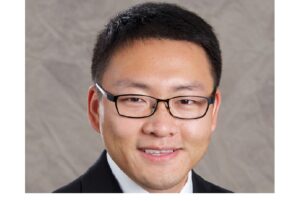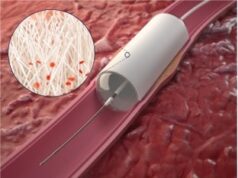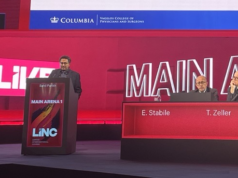
Justin Guan is an interventional radiologist practising at the Cleveland Clinic (Cleveland, USA), who is also involved in the Society of Interventional Radiology’s (SIR) International Division. He and other members of the division are currently conducting a survey of interventional radiologists and interventional radiology (IR) trainees worldwide with the goal of better understanding the challenges and priorities in IR internationally. Guan took some time to speak to Interventional News about his reasons for getting involved in the global-facing side of SIR, why the survey is so important, and what he and colleagues working on it hope the results will yield for IR and its patients in the not-too-distant future.
How did you get involved in the survey and how did it come to be?
I was born in China and my family moved to the USA when I was seven, so I have always been exposed to different countries’ perspectives and travelled to different places. So I am really interested in the international relations aspect of my work, helping to develop international cooperation. This Global Trainee Network that I am heading was a new subcommittee created under the International Division [of SIR] and our chancellor Dr Constantinos Sofocleous. We had started working on this project under Dr Brian Stainken a few years back when he was the chancellor, and this year, we finally got it approved by SIR to be distributed internationally.
What are the goals of the survey? What questions is it asking?
The main goal is to understand what IR training and practice is like throughout the world, as we do not have much data on what it is like in most countries. Once we have these gaps in the data filled, our hope is that we will be able to better direct resources to areas where we feel these will make the most impact—helping to create training programmes, provide continuing medical education resources, or imaging/procedural devices, for instance. We will also know how to direct different companies and players within industry who can provide the tools for this. Another goal is being able to increase awareness of IR among patients across the world.
The survey includes questions like ‘where do you practice?’; ‘does your centre offer training?’; ‘what sort of procedures do you do?’; and ‘what are the main factors preventing expansion of IR in your region?’
What is the plan in terms of a practical response in places where the survey shows there is most demand for outreach or collaboration to improve and expand IR services?
We do not quite have the infrastructure in place at this moment to send delegations to regions where there is most need, but we could set up industry partnerships to do that. We could potentially create exchange programmes like the SIR delegation that went to Central America a few years back, and there are groups such as Road2IR who are currently setting up training programmes in sub-Saharan Africa. We want data on the state of IR services as is, so we know how to develop initiatives going forward.
Do you foresee SIR collaborating with other societies to implement a training provision-focused response to the survey data?
We could, and definitely should, have intersociety collaboration to fill in the gaps once we have the data on where there is IR training and where there is not. On the trainees side, there is already the IR Juniors global summit, initially set up by trainees in the UK and Middle East, which is flourishing. We just had the third annual summit, which was sponsored by SIR this year. Trainees from different societies came together to discuss what IR is about and the potential is for it going into the future. We will continue this collaboration going forward.
How are you intending to share the data from the survey?
We are going to summarise the data in an article, hopefully by the end of the year. The plan is to have the data collected and ready by late summer. Depending on what we find, there is scope to have additional projects in the works focusing on specific areas of IR practice, for example.

To take part in the short ‘Global assessment of the status of IR’ survey, go to the following link—https://www.surveymonkey.com/r/JYPVZKJ—or scan the QR code.










